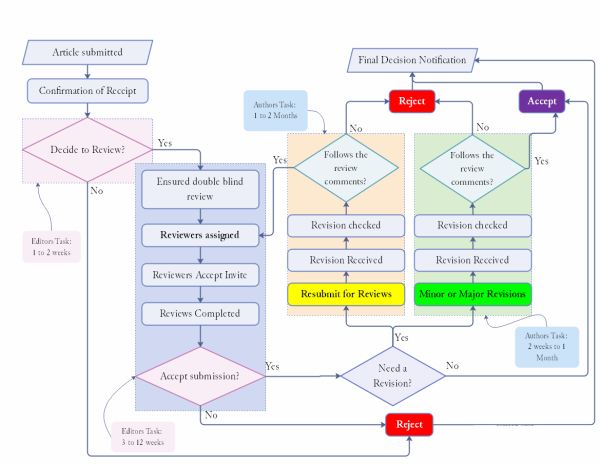- Focus and Scope
- Section Policies
- Peer Review Process
- Open Access Policy
- Archiving
- Publication Ethics
- Withdrawal of Manuscripts
- Plagiarsm Policy
Focus and Scope
Aspects of development with which the journal is concerned include the results of critical thinking and educational areas in broader sense, including formal and non-formal education, from preschool to adult education, and also education in general such as history education philosophy, social capital, social and culture, educational morality, community development, leadership, multicultural education; human development, well being, the availability of human rights; democracy, social cohesion and peace-building; resilience and environmental sustainability; and improving the competencies of students and educators through activities in many subjects.
JPPFA is interested in comparative studies that lead to new insights and challenge of orthodox theories; that have potential for policy impact; and that apply to broad range of settings, including industrial democracies as well as low and middle income countries, countries in political transition and countries recovering from armed conflict and social unrest. JPPFA also considers papers that look at education and development through the policies and practices of official development assistance and commercial education trade. JPPFA engages these approaches to deepen the understanding of the relationship between education policy and development.
Section Policies
Articles
Peer Review Process
- Editors first review the submitted manuscript, called initial review by the editors. It will be desk evaluated whether the submitted manuscript is suitable for the Jurnal Pembangunan Pendidikan: Fondasi dan Aplikasi based on focus and scope, similarity score by using Anti-Plagiarism Software, methodological flaw, readability of the articles, and adhering to the submitted paper template.
- Furthermore, the manuscript will be sent to at least two anonymous reviewers (double-blind peer-review).
- The anonymous reviewers' comments are then sent to the corresponding author for necessary actions and responses. Afterward, the editorial team meeting suggested the final decision to the revised manuscript by authors.
- Finally, the Editor will send the final decision to the corresponding author.
- The accepted manuscript then continued to the copyediting and layout editing process to prepare the camera-ready paper.

Open Access Policy
This journal is an open-access journal that provides immediate, worldwide, barrier-free access to the full text of all published articles without charge readers or their institutions for access. Readers have the right to read, download, copy, distribute, print, search, or link to the full texts of all articles in the Jurnal Pembangunan Pendidikan: Fondasi dan Aplikasi. This journal provides immediate open access to its content on the principle that making research freely available to the public supports a greater global exchange of knowledge.
Archiving
This journal utilizes the LOCKSS system to create a distributed archiving system among participating libraries and permits those libraries to create permanent archives of the journal for purposes of preservation and restoration. More...
Publication Ethics
Section A: Publication and authorship
- All submitted papers are subject to strict peer-review process by at least two reviewers that are experts in the area of the particular paper.
- Review process are double blind peer review.
- The factors that are taken into account in review are relevance, soundness, significance, originality, readability and language.
- The possible decisions include acceptance, acceptance with revisions, or rejection.
- If authors are encouraged to revise and resubmit a submission, there is no guarantee that the revised submission will be accepted.
- Rejected articles will not be re-reviewed.
- The paper acceptance is constrained by such legal requirements as shall then be in force regarding libel, copyright infringement and plagiarism.
- No research can be included in more than one publication.
Section B: Authors’ responsibilities
- Authors must certify that their manuscripts are their original work.
- Authors must certify that the manuscript has not previously been published elsewhere.
- Authors must certify that the manuscript is not currently being considered for publication elsewhere.
- Authors must participate in the peer review process.
- Authors are obliged to provide retractions or corrections of mistakes.
- All Authors mentioned in the paper must have significantly contributed to the research.
- Authors must state that all data in the paper are real and authentic.
- Authors must notify the Editors of any conflicts of interest.
- Authors must identify all sources used in the creation of their manuscript.
- Authors must report any errors they discover in their published paper to the Editors.
Section C: Reviewers’ responsibilities
- Reviewers should keep all information regarding papers confidential and treat them as privileged information.
- Reviews should be conducted objectively, with no personal criticism of the author
- Reviewers should express their views clearly with supporting arguments
- Reviewers should identify relevant published work that has not been cited by the authors.
- Reviewers should also call to the Editor in Chief’s attention any substantial similarity or overlap between the manuscript under consideration and any other published paper of which they have personal knowledge.
- Reviewers should not review manuscripts in which they have conflicts of interest resulting from competitive, collaborative, or other relationships or connections with any of the authors, companies, or institutions connected to the papers.
Section D: Editors’ responsibilities
- Editors have complete responsibility and authority to reject/accept an article.
- Editors are responsible for the contents and overall quality of the publication.
- Editors should always consider the needs of the authors and the readers when attempting to improve the publication.
- Editors should guarantee the quality of the papers and the integrity of the academic record.
- Editors should publish errata pages or make corrections when needed.
- Editors should have a clear picture of a research’s funding sources.
- Editors should base their decisions solely one the papers’ importance, originality, clarity and relevance to publication’s scope.
- Editors should not reverse their decisions nor overturn the ones of previous editors without serious reason.
- Editors should preserve the anonymity of reviewers.
- Editors should ensure that all research material they publish conforms to internationally accepted ethical guidelines.
- Editors should only accept a paper when reasonably certain.
- Editors should act if they suspect misconduct, whether a paper is published or unpublished, and make all reasonable attempts to persist in obtaining a resolution to the problem.
- Editors should not reject papers based on suspicions, they should have proof of misconduct.
- Editors should not allow any conflicts of interest between staff, authors, reviewers and board members.
Withdrawal of Manuscripts
The author is not allowed to withdraw the submitted manuscripts because the withdrawal is a waste of valuable resources that editors and referees spent a great deal of time processing the submitted manuscripts, and works invested by the Publisher. However, the authors could suggest the withdrawal if there is no updated progress review information after six months from our side.
Email for requesting withdrawal: jpp.ppsuny@uny.ac.id
Plagiarsm Policy
Plagiarism Includes But is Not Limited to:
- Refer and/or quoting terms, words and/or sentences, data and/or information from a source without citing sources in the record citation and/or without stating the source adequately;
- Refer and/or quoting random terms, words and/or sentences, data and/or information from a source without citing a source in the record citation and/or without stating the source adequately;
- Using a source of ideas, opinions, views, or theory without stating the source adequately;
- Formulate the words and/or sentences themselves from the source of words and/or phrases, ideas, opinions, views, or theory without stating the source adequately;
- Submit scientific papers produced and/or published by others as a source of scientific work without express adequately.
Prevention
Jurnal Pembangunan Pendidikan: Fondasi dan Aplikasi will ensure that every published article will not exceed a 20% similarity score. Plagiarism screening will be conducted by Jurnal Pembangunan Pendidikan: Fondasi dan Aplikasi using Turnitin and Plagiarism Checker X
Sanctions
- Reprimand;
- Letter of warning;
- Revocation of the article;
- Cancellation of publication.


















